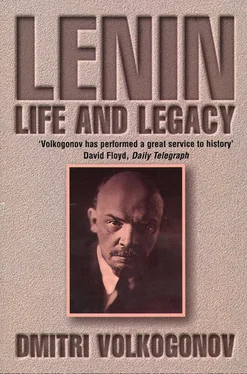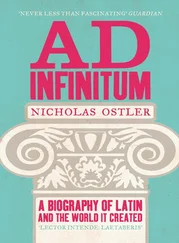* Vyacheslav Plehve, Nicholas II’s Interior Minister, was assassinated in 1904. Peter Stolypin was the Prime Minister from 1906 until he was assassinated – in the tsar’s presence – in 1911.
* Larin, whose real name was Mikhail Lurie, was a top official in the economic apparatus. Alexei Rykov was in charge of the Council for the National Economy.
On the evening of 1 August 1914, Germany declared war on Russia. When mobilization was declared, the whole nation rallied to the tsar. Plekhanov expressed a strong desire to defend the fatherland, and even Trotsky, who was not a defencist, wrote in the Paris newspaper Nashe slovo (Our Word) (formerly Golos , The Voice) that to preach the defeat of tsarist Russia made no sense, since that would mean advocating the victory of reactionary Germany. Only Lenin sensed intuitively the improbable, fantastic chance of achieving his hopes.
As patriotism sank in the mud and blood of the trenches, and hopes for victory faded, Lenin grew confident that neither Tsar Nicholas nor Kaiser Wilhelm would emerge from the war without a revolution. The intelligentsia, both in Russia and Germany, cursed the war and called for peace. But while each side hoped that its own army would not be defeated, only Lenin saw the war as an indispensable ally.
Unlike the peasant in his soldier’s cloak, enduring gas attacks, or the prisoner of war in Saxony, or the impoverished family in the city, Lenin observed the war from the Russian émigré’s grand circle, at first in Poronino and Vienna, and then in the neutral comfort of Berne and Zurich. How did the leader of the future Russian revolution fill the time during its prologue? Did he prepare himself for the rôle he was to play? Was he confident of the outcome? Until the February revolution, he led the quiet life of a man used to living far from home and not very much concerned with domestic cares. Life for Lenin in those years meant writing hundreds of letters to a relatively limited circle of people, among them his close Bolshevik associates Alexander Shlyapnikov, Alexandra Kollontai, Karl Radek, Grigory Pyatakov, S. Ravich, Grigory Zinoviev and Lev Kamenev, and his friend and benefactor Maxim Gorky. A large part of his correspondence was with Inessa Armand, he being in Zurich, she in Clarens on Lake Geneva near Montreux. It was an emotionally charged exchange between two very close people who, though they discussed revolutionary matters, tried to give each other something more than routine reports, more than confirmation of the posting of books or organizing links between Russia and Scandinavia.
Lenin spent a lot of time studying the works of Hegel, Aristotle and Lassalle, as well as Napoleon and Clausewitz, he read Victor Hugo’s poetry and occasionally took Krupskaya to the local theatre. They were able to relax at a moderately priced spa in the mountain resort of Flums in St Gallen. When he was not writing letters, resting, holding meetings, travelling or rowing with his opponents, Lenin wrote articles, pamphlets and more substantial works such as ‘Imperialism as the Highest Stage of Capitalism’. Since the post from Russia was slow, he got his news from The Times, Neue Zürcher Zeitung and Le Temps , and he gained the growing impression that an earthquake was approaching in Russia. The nation’s weariness of the hardships imposed by the war and constant defeats was reaching a critical point, although what lay beyond even Lenin did not suspect.
In early January 1917 he gave a lecture at the People’s House in Zurich on the twelfth anniversary of the 1905 revolution. The audience, mostly students, was sparse, and the lecture was boring, prolonged and largely descriptive. Lenin emphasized the fact that in 1905 the scale of civil unrest had been insufficient to topple the autocracy: ‘The peasants burned up to 2000 estates and divided the livestock among themselves … Unfortunately, this was only one-fifteenth of what they ought to have destroyed … They did not act with sufficient aggression, and that is one of the main causes for the failure of the revolution.’ He rushed on speedily through his notes, expressing the view that 1905 would remain ‘the prologue to the approaching European revolution’. He did not mention Russia as the scene of imminent rebellion, and also declared that the revolution would not come soon, concluding: ‘We old folks may not live to see the decisive battles of the coming revolution.’ 1
The two chief causes of the February revolution were the unsuccessful progress of the war and the weakness of the regime. Ostensibly, the Russian state collapsed suddenly, but its foundations had been eroded long before. As for the war, despite strategic failures, Russia’s position was not hopeless. The front had been stabilized far from the Russian capital and other vital centres. A breakthrough by General Brusilov in the summer of 1916 had given the people hope in the possibility of an honourable outcome. Far-sighted politicians saw that Germany could not win, especially as the United States seemed likely to enter the war on the Allied side.
To be sure, Social Democratic agitation had its effect on the war-weary army, and the Germans managed to get Bolshevik-style propaganda into the Russian trenches, which would help the Kaiser rather than Russia. President of the Duma Rodzianko wrote in his memoirs that ‘the symptoms of the army’s disintegration could be felt already in the second year of the war … Reinforcements from reserve battalions were arriving at the front with a quarter of the men having deserted … Sometimes, echelons bound for the front would halt because they had nothing left but officers and subalterns. Everyone else had scattered.’ 2 Socialist agitation among the peasants who were unwilling to fight was extremely effective, and the Bolsheviks were making their own independent contribution to the disintegration of the Russian army. On the whole, however, Russia had not yet exhausted her material and human resources on a war that came to seem increasingly just as the German occupation of her territory endured, especially since it was Germany that had started the war.
But the regime proved incapable of governing in a critical situation. Nicholas II’s decision on 6 August 1915 to assume the post of Supreme Commander did not help. Almost the entire cabinet of ministers had protested that the tsar’s decision could threaten both him and the monarchy. 3 Nicholas was adamant, however, and departed for Staff Headquarters, leaving the capital to the hostile and venal groupings that had formed in his own entourage. In a country accustomed to one-man rule, the ‘domestic peace’ proclaimed by the Duma when war broke out soon evaporated.
Events in the capital developed their own momentum. On 27 February (12 March New Style) 1917, crowds broke into the Tauride Palace, where a Provisional Committee of the Duma was meeting. By the evening of the same day another claimant to power had emerged, namely the Soviet of Workers’ Deputies, hastily convened by the Party organizations. Paul Milyukov, the leader of the Constitutional Democrats, and soon to become Foreign Minister in the post-tsarist government, later wrote: ‘The soldiers appeared last, but they were the masters of the moment, even if they did not realize it themselves.’ They did not behave like conquerors, but rather like men fearful of the consequences of having disobeyed orders and killed their commanding officers. ‘They were even less sure than we that the revolution had succeeded. They wanted recognition and protection.’ 4
In the words of Alexander Solzhenitsyn, a ‘long fatigue’ began which finally knocked away the foundations of the state, social stability and national unity. The main question was who would exploit the new situation. The dominant thought in the public mind was that only drastic measures of a revolutionary character could provide an outcome. Some figures close to the tsar believed that the situation had arisen out of weakness on the part of the regime. Grand Duke Alexander Mikhailovich had written bitterly to the tsar less than one month before his abdication: ‘We are present at the unprecedented spectacle of a revolution from above, not from below.’ 5
Читать дальше












